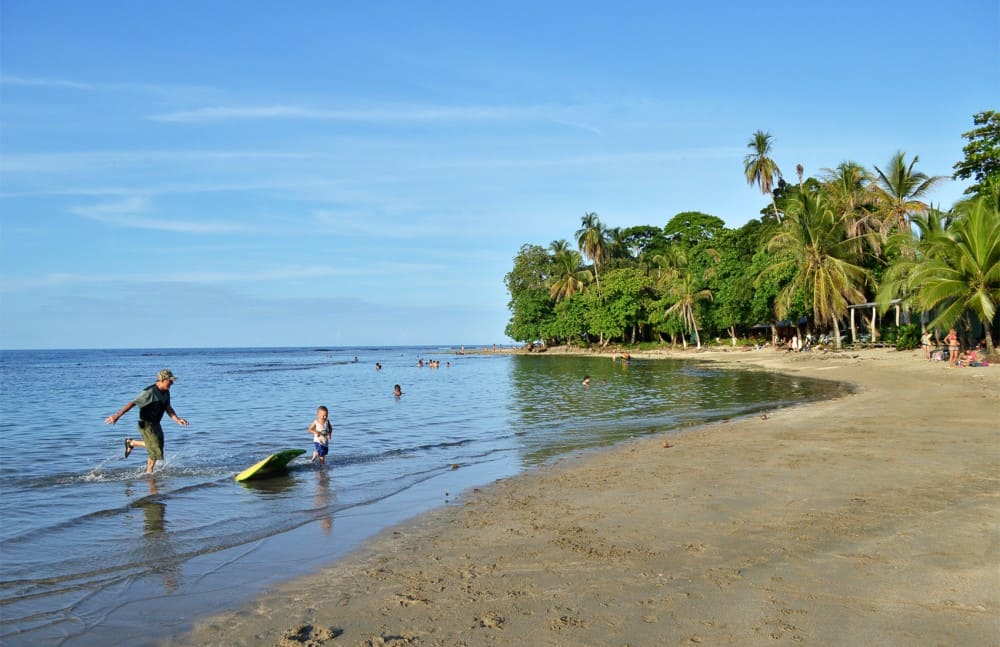Beware of Gringo neophyte ‘experts’
This is a subject that I have written about repeatedly and can make the difference between success or failure while living here.
During the last 41 years I have had the chance to observe many North Americans who pass themselves off as experts on Costa Rica. Most work in real estate, tourism while others offer relocation services. Many have only resided here a few years and do not have legal immigration status.

I remember an elderly gentleman who began to offer relocation tours around 2005. He was retired and had residency but without permission to work. He started his business while only having lived here for less than year.
Then there were a husband and wife who came here and soon began to offer relocation services but without being permanent residents, thus working illegally. Temporary residents cannot work here!
I also know of many expats who work in the field of real estate illegally. Would you do business with an illegal immigrant in your home country?
Stories like the ones above abound in Costa Rica because the country’s immigration department is stretched very thin and cannot possibly keep track of all of the expats who work here without permission.
The issue with this phenomenon is not so much that foreigners are taking advantage of the country’s lax immigration enforcement, but their qualifications and competency.
On many occasions I have observed that people relocate to Costa Rica and within a year they claim to know everything about the country. Over the last 20 years scores of books have been written along with videos about living here. Some of the information is helpful but most of those behind these endeavors simply do not have enough experience while living in the country. In addition, the majority of these individuals worked in completely different fields in their home countries that have nothing to do with the day-to-day reality here. These people just do not have enough time with their boots on the ground. Moreover, few speak Spanish well enough to really understand the people, culture and nuances of day-to-day living.
After all language is just not about words but also “mindset and culture.”
If you happen to come into contact with any foreigner who is in business here, no matter how convincing he or she may be, do all of the following and do not “leave your brain on the plane.” People who move here tend to do things that they would never do at home and think just because someone speaks English they are good hands.
- Ask for references from other foreign residents who have used the expert’s services. Don’t rely on the testimonials that appear on a person’s web site. They may be slanted. If your expert will not give you any references, you will know immediately you are being duped or sold shoddy second-rate services. Also, try to contact the person’s last employer before moving to Costa Rica. Again, if they will not give you the contact information, you can bet a person is hiding something. People who are younger than retirement age and claim to have been highly successful at home may be trying to cover up something about their background.
- Check with the Association of Residents of Costa Rica (ARCR) to see if they are familiar with the person’s services.
- Enter the person’s name in a search engine such as Google to see what comes up. There are even companies that you can pay to do a background check if you suspect something.
- Ask how long the person has lived in Costa Rica. If the answer is only a few years, be careful. It takes more than a year or two to know all the ropes. In fact, it takes years to understand this country. For example, many of these entrepreneurs mean well but just don’t have enough experience under their belts to tell you the entire story.
- Find out about people’s educational backgrounds when they lived in their home country and if they had any formal training in the Latin American culture, studies or foreign investments. If someone was a plumber, janitor, welder or doctor prior to moving here, this does not qualify anyone to give professional advice about Costa Rica. Even if people worked in real estate in their home country, the rules are different both here and there.
- Beware of colorful, well-designed web sites built by so-called experts that express their admiration for the country. Those who are lower on the expat food chain can fall for this “hook, line and sinker.”
- Be cautious about publications that appear to be helpful on the surface but incessantly hype the services of the person(s) or organization behind them.
- Over the years I have run into so-called foreign experts who live comfortably in upscale in “Ivory Towers” and gated communities in gingo enclaves. The majority of their friends are other English speakers, so they have never really immersed themselves in the local culture. They are virtually still foreigners living among other foreigners and are really “strangers in a strange land.” These people live in virtual isolation from the real Costa Rica. Few of them have any contact with Costa Ricans except for their maids and other workers. They rarely venture out of their safe environment to gather the necessary experience to confront real life situations here. Most live as if they were still in their home country, and give advice about a country and culture they really don’tunderstand.
- Beware of the information and advice on the so-called “hobby web sites.” These include the growing number sites put up by expatriates in Costa Rica to share their experiences. On the surface these sites seem helpful but the majority of the people behind them are neophytes who have not lived here long enough to really be qualified to give good advice. Once again, most of these individuals don’t even speak enough Spanish to really get an objective view of the country and culture. Also, there are a few video-type blogs portraying people’s experiences who have moved here. While they are entertaining they shouldn’t be considered a true source of information. Unfortunately, the internet has now given every “Tom, Dick and Harry” a chance to be the star of their own reality show and fifteen minutes of fame.
- Most importantly, find out if the person is truly fluent in Spanish. Beware: there are many foreigners who say they speak fluent Spanish with a vocabulary of only a couple of hundred words. I have run into many of them in my 41 years here.
Parts of this article appear in the 19th edition of my 775-page retirement guidebook, “The New Golden Door to Retirement and Living in Costa Rica — the official guide to relocation” available from www.costaricabooks.com and www.amazon.com



